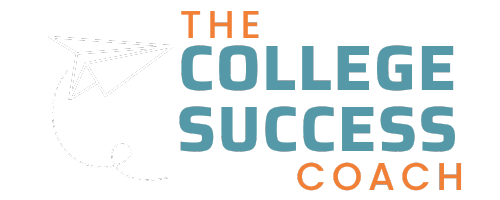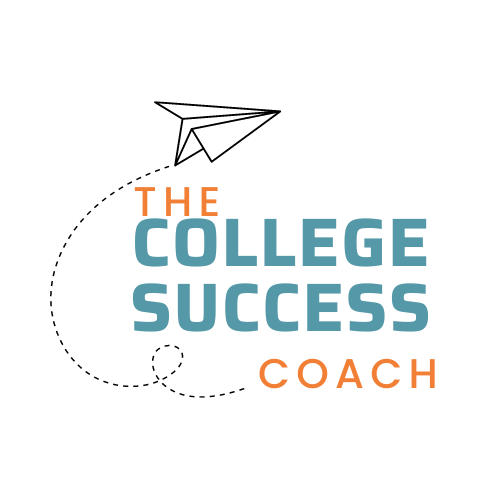First-Year Student Success Checklist
Are you a first-year student about to embark on your first year of college? Congratulations! This is an exciting and transformative time in your life. However, it’s also common to feel overwhelmed or unsure about what to expect. That’s where this ultimate guide comes in. In this comprehensive article, we’ll provide you with the tips, advice, and must-knows to not just survive but thrive as a first-year student.
From navigating the college application process to managing your time effectively, we’ll cover everything you need to know to make the most out of your freshman year. You’ll learn secrets for acing exams, finding balance between your academics and social life, and making lasting connections with fellow classmates. We’ll also address common challenges like living on your own for the first time and dealing with homesickness.
Whether you’re attending a large university or a small college, this guide is designed to equip you with the tools and knowledge you need to succeed. So get ready to embark on an incredible journey of self-discovery, growth, and academic achievement. Let’s dive in and make your first year of college a memorable one.
Discover how personalized coaching helps students and parents thrive in college life. Explore College Success Coach
Adjusting to campus life

The transition from high school to college can be both exhilarating and daunting. As a first-year student, you’ll be navigating a whole new environment, complete with unfamiliar faces, a bustling campus, and increased academic demands. However, with the right mindset and strategies, you can make this adjustment seamless.
One of the biggest challenges you may face is finding your way around the campus. Take the time to familiarize yourself with the layout of your university, locate key buildings like your dorm, the library, and the dining halls. Attend any campus orientation programs or tours offered, as these can provide valuable insights and help you feel more comfortable in your new surroundings. Additionally, don’t be afraid to ask for directions or assistance from upperclassmen or staff – they’ve been in your shoes and are often more than willing to help.
Another aspect of campus life that may take some getting used to is the increased independence and responsibility. As a first-year student, you’ll be responsible for managing your own schedule, making your own decisions, and taking care of your personal needs. This can be both liberating and overwhelming, so it’s important to develop healthy habits and routines early on. Experiment with different strategies to find what works best for you, whether it’s creating a daily planner, setting reminders on your phone, or establishing a consistent sleep schedule. By taking proactive steps to organize your time and responsibilities, you’ll be able to navigate this newfound freedom with confidence.
Practical tools and guidance for students building independence and success in college. Visit Student Resources
Time management and organization tips

Effective time management is crucial for success as a first-year student. With a packed schedule of classes, extracurricular activities, and social engagements, it’s easy to feel overwhelmed. However, by developing strong organizational skills and time-management strategies, you can maximize your productivity and maintain a healthy work-life balance.
One of the first steps to effective time management is to create a detailed schedule or calendar. Block out time for your classes, study sessions, meals, and any other commitments. This will help you visualize your day and ensure that you’re allocating sufficient time for all your responsibilities. Additionally, be sure to build in breaks and leisure time – it’s important to balance your academic pursuits with self-care and relaxation.
Another valuable tip is to prioritize your tasks and assignments. Make a to-do list and categorize items based on their due dates and importance. This will help you focus your efforts on the most pressing and critical tasks, ensuring that you don’t fall behind on your coursework. Furthermore, consider using productivity tools like task-management apps or the Pomodoro technique to help you stay on track and avoid procrastination.
Effective organization is also key to successful time management. Keep your study space and living area tidy and clutter-free, as a clean environment can help reduce distractions and boost your focus. Invest in useful organizational tools like binders, folders, and a reliable note-taking system to keep your materials organized and accessible. Additionally, consider implementing a filing system for your assignments, handouts, and other important documents to ensure that you can easily find what you need when you need it.
Step-by-step counseling to navigate applications, admissions, and academic choices. Start College Counseling
Building a support network

As a first-year student, it’s crucial to build a strong support network to help you navigate the challenges and opportunities of college life. This network can include a diverse range of individuals, from your fellow classmates to faculty members and campus resources.
One of the best ways to start building your support network is by making connections with your peers. Attend campus events, join student organizations, or simply introduce yourself to the people in your classes. These interactions can lead to the formation of study groups, social circles, and even lifelong friendships. Remember, your fellow first-year students are likely experiencing similar emotions and challenges, so don’t be afraid to reach out and support one another.
In addition to your peers, it’s also important to establish relationships with faculty members and academic advisors. These individuals can provide valuable guidance, mentorship, and support throughout your academic journey. Don’t hesitate to attend office hours, ask questions during class, or schedule one-on-one meetings to discuss your academic progress, career aspirations, or any concerns you may have. Faculty members can offer invaluable insights and help you make the most of your college experience.
Furthermore, be sure to familiarize yourself with the various campus resources and services available to you. This may include the counseling center, the writing center, the career center, and any other specialized support services. These resources can provide you with the tools, knowledge, and assistance you need to thrive academically, personally, and professionally. Don’t be afraid to take advantage of these services – they are there to help you succeed.
Holistic coaching programs tailored to college success and personal growth. View Coaching Programs
Studying effectively and mastering coursework

Navigating the academic demands of college can be a significant challenge for a first-year student. However, by developing effective study habits and strategies, you can master your coursework and excel in your classes.
One of the keys to academic success is active engagement with the course material. Instead of passively reading or listening to lectures, actively participate by taking notes, asking questions, and engaging in discussions. This will help you better understand and retain the information, ultimately leading to improved performance on exams and assignments.
Another important study strategy is to create a dedicated study space that is free from distractions. Find a quiet, well-lit area where you can focus on your work without the temptation of social media, television, or other digital distractions. Consider using noise-cancelling headphones or ambient music to help you stay focused and minimize external stimuli.
In addition to creating a conducive study environment, it’s also crucial to develop effective study techniques. This may include strategies like the Pomodoro method, which involves working in focused 25-minute intervals followed by short breaks, or the SQ3R method (Survey, Question, Read, Recite, Review), which can help you actively engage with the material. Experiment with different approaches to find what works best for your learning style and preferences.
Finally, don’t underestimate the importance of seeking help when you need it. If you’re struggling with a particular subject or assignment, don’t hesitate to reach out to your professor, teaching assistant, or the campus tutoring center. These resources can provide you with the guidance, support, and additional instruction you need to overcome academic challenges and excel in your coursework.
A free workbook to help students stay organized and on track. Download the Workbook
Navigating campus resources and services

College campuses offer a wealth of resources and services designed to support students throughout their academic journey. As a first-year student, it’s important to familiarize yourself with these offerings and take advantage of them to enhance your overall college experience.
One of the most crucial campus resources is the academic advising office. Your academic advisor can provide invaluable guidance on course selection, degree requirements, and academic planning. They can help you navigate the complexities of your program, identify potential areas of interest, and ensure that you are on track to graduate. Don’t hesitate to schedule regular meetings with your advisor to stay informed and make the most of your academic opportunities.
In addition to academic support, many colleges and universities offer a range of student services to address your personal and professional needs. This may include the counseling center, which can provide mental health support and resources, or the career center, which can assist with résumé building, job search strategies, and internship opportunities. Take the time to explore these offerings and utilize them as needed to support your overall well-being and career development.
Another important campus resource is the library. Beyond serving as a quiet study space, the library can provide you with access to a wealth of academic resources, including research databases, scholarly journals, and subject-specific librarians who can help you with your research and writing needs. Familiarize yourself with the library’s services and take advantage of the workshops or one-on-one consultations they may offer to enhance your research and writing skills.
Finally, don’t overlook the importance of campus health and wellness services. Many colleges and universities offer on-campus health clinics, fitness facilities, and recreational activities that can help you maintain a healthy lifestyle during your first year. Take advantage of these resources to prioritize your physical and mental well-being, as this can have a significant impact on your academic performance and overall college experience.
Stay ahead with this essential college readiness checklist. Get the Checklist
Getting involved on campus

As a first-year student, one of the best ways to make the most of your first year of college is to get involved in campus life. Participating in extracurricular activities, student organizations, and community service initiatives can not only enrich your college experience but also help you develop valuable skills and build meaningful connections.
When it comes to getting involved, the first step is to explore the wide array of student organizations and clubs on your campus. Whether you’re interested in sports, arts, politics, or community service, there’s likely a student group that aligns with your passions and interests. Attend club fairs, browse the campus website, or reach out to the student life office to learn about the various opportunities available. Joining a club or organization is a fantastic way to meet like-minded individuals, develop new skills, and contribute to the campus community.
In addition to student organizations, consider getting involved in campus events, lectures, and cultural activities. These offerings can expose you to new ideas, diverse perspectives, and engaging learning experiences beyond the classroom. Attend campus-wide events, guest speaker presentations, or cultural festivals to broaden your horizons and immerse yourself in the vibrant intellectual and social fabric of your college community.
Furthermore, don’t overlook the importance of community service and volunteer work. Engaging in these activities not only allows you to give back to your local community but also provides opportunities for personal growth, skill development, and networking. Look for on-campus volunteer opportunities or reach out to local organizations to explore ways to get involved. These experiences can be incredibly rewarding and can also enhance your résumé and graduate school applications.
By actively participating in campus life, you’ll not only enrich your college experience but also develop valuable skills, build lasting connections, and position yourself for future success. Embrace the countless opportunities available to you and make the most of your first year as a college student.
Balance academics and well-being with our College Wellness Wheel tool. Try the Wellness Wheel
Maintaining physical and mental well-being

As a first-year student, it’s easy to become consumed by the demands of academic life, leaving little time for self-care. However, maintaining your physical and mental well-being is crucial for your overall success and happiness during your college journey.
One of the most important aspects of self-care is prioritizing your physical health. This includes establishing a consistent sleep schedule, eating a balanced diet, and engaging in regular physical activity. Strive to get the recommended 7-9 hours of sleep each night, and be mindful of your eating habits, ensuring that you’re fueling your body with nutritious foods. Additionally, make time for exercise, whether it’s a daily walk, a workout at the campus gym, or participation in an intramural sport. Regular physical activity not only supports your physical health but can also have a positive impact on your mental well-being.
In addition to physical self-care, it’s equally important to address your mental and emotional well-being. College can be a stressful and overwhelming experience, and it’s normal to feel anxious, homesick, or even depressed at times. Don’t hesitate to seek support from the campus counseling center or other mental health resources. These professionals can provide you with the tools and strategies to manage stress, develop healthy coping mechanisms, and maintain a positive mindset throughout your first year.
Furthermore, make time for activities that nourish your mental and emotional well-being. This may include practicing mindfulness or meditation, engaging in creative hobbies, or simply taking breaks to unwind and recharge. Remember, your academic success is not solely dependent on the number of hours you spend studying – it’s also crucial to maintain a healthy work-life balance and prioritize your overall well-being.
By prioritizing your physical and mental health, you’ll not only be better equipped to handle the demands of college life but also position yourself for long-term success and personal growth. Don’t hesitate to seek support and make self-care a priority throughout your first year and beyond.
Smart financial tips every college student needs to save and thrive. Grab the Financial Guide
Balancing academics and social life

As a first-year student, you’ll be faced with the challenge of finding a healthy balance between your academic responsibilities and your social life. While it’s important to maintain a strong focus on your studies, it’s equally crucial to make time for personal growth, relationship-building, and enjoyment.
One of the keys to striking this balance is effective time management. By creating a well-organized schedule and prioritizing your tasks, you can ensure that you’re dedicating sufficient time to both your academic and social pursuits. Set aside dedicated study hours, but also block out time for socializing, extracurricular activities, and self-care. This will help you avoid burnout and ensure that you’re making the most of your college experience.
When it comes to your social life, be intentional about the connections you make and the activities you engage in. Seek out opportunities to meet new people, whether it’s through student organizations, campus events, or simply introducing yourself to your classmates. These connections can not only enrich your college experience but also provide valuable support and camaraderie throughout your academic journey.
At the same time, be mindful of the balance between your social life and your academic responsibilities. While it’s important to make time for fun and relaxation, don’t let your social activities interfere with your ability to succeed in the classroom. Develop strategies to manage your time effectively, such as setting boundaries around social media use or limiting the number of social events you attend during peak academic periods.
Remember, finding the right balance between academics and social life is a process, and it may take some trial and error to discover what works best for you. Be patient with yourself, and don’t hesitate to seek guidance from your academic advisor, student support services, or upperclassmen who have navigated this balance successfully. By prioritizing both your academic and personal growth, you’ll be well on your way to a fulfilling and rewarding first-year experience.
Expert articles and tips on navigating college life, academics, and independence. Read the Blog
Conclusion: Embracing the first-year student experience and setting yourself up for success
As you embark on your first year of college, it’s important to embrace the journey ahead with a positive mindset and a commitment to personal growth. While the transition to college life may come with its fair share of challenges, the experiences and lessons you’ll gain as a first-year student will lay the foundation for your future success.
Throughout this guide, we’ve explored a range of strategies and best practices to help you thrive as a first-year student. From navigating campus life and managing your time effectively to building a strong support network and maintaining your well-being, you now have the tools and knowledge to navigate the complexities of college life with confidence.
Remember, your first year is not just about academic achievement – it’s also a time for self-discovery, personal growth, and exploring new interests and passions. Embrace the opportunities that come your way, whether it’s joining a student organization, attending a campus event, or simply stepping out of your comfort zone to meet new people. These experiences will not only enrich your college journey but also equip you with valuable skills and experiences that will serve you well beyond graduation.
As you move forward, continue to be proactive, ask for help when needed, and stay true to your goals and values. With dedication, resilience, and a willingness to learn, you’ll navigate the challenges of your first year and position yourself for long-term success. Congratulations on embarking on this exciting new chapter – may it be filled with countless opportunities for growth, discovery, and lasting memories.






0 Comments
Trackbacks/Pingbacks